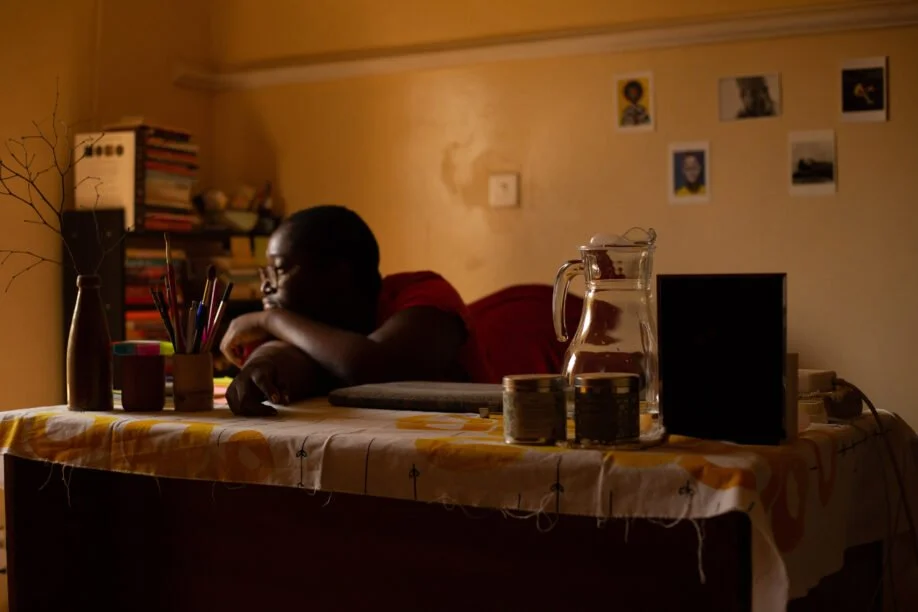
In the Dark in Nigeria (2023)
Focus: The psychological toll of infrastructure deficits
Summary:
With In the Dark in Nigeria, I draw attention to the emotional and psychological costs of Nigeria’s chronic electricity failures. How taking the light shapes our daily rhythms, capacity, and even how we perceive time and connection. Light as visibility, as relief, and as power.
Read more: https://popula.com/2023/07/29/in-the-dark-in-nigeria/